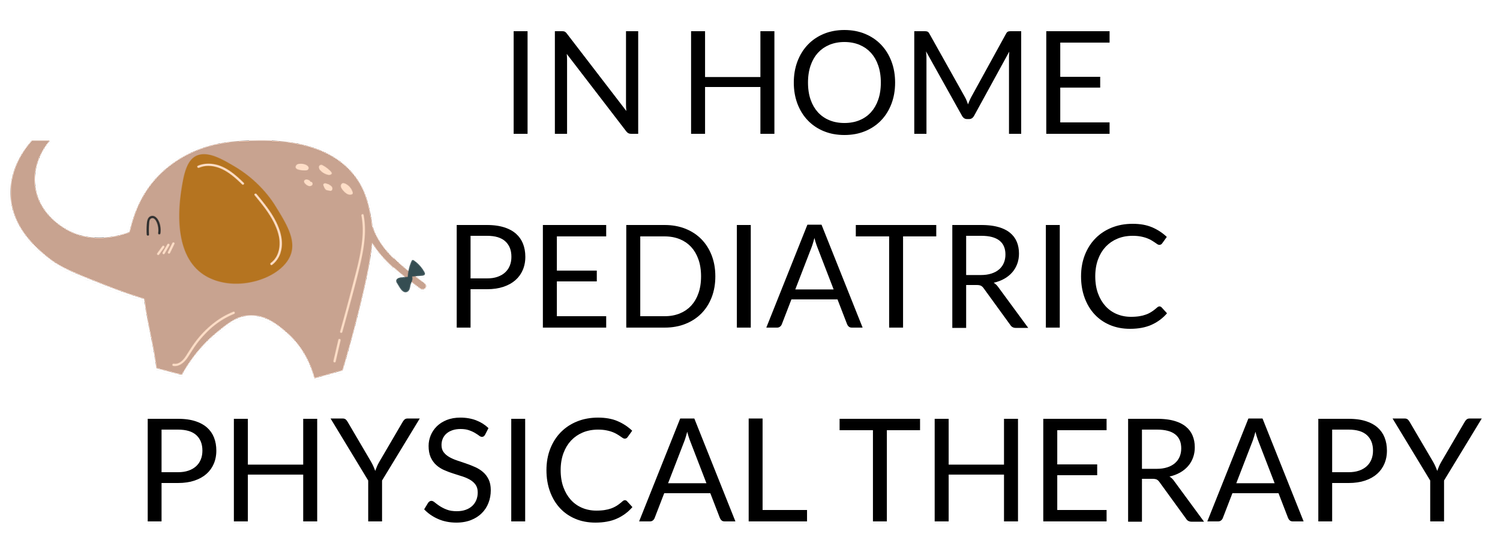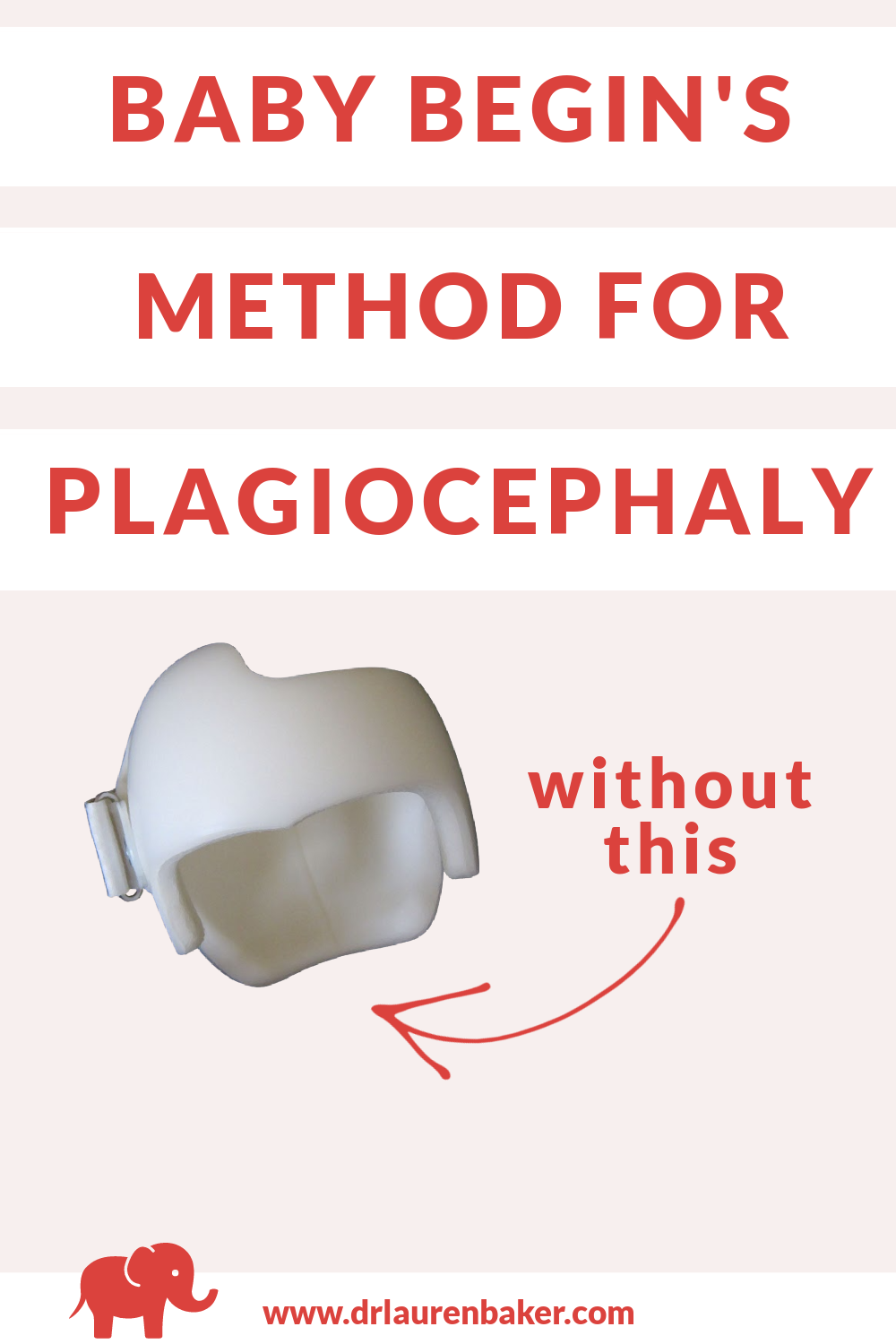Conservative Management of Plagiocephaly Without A Helmet Using The Baby Begin Method
Dr. Lauren Baker In Home Pediatric Physical Therapy is excited to announce that Dr. Lauren Baker, DPT, is officially trained in the Baby Begin Method of conservative management of Plagiocephaly. We’re so excited to bring conservative management of plagiocephaly without a helmet to Boise, Idaho and the Treasure Valley.
What is Plagiocephaly?
Plagiocephaly is a medical diagnosis that describes a flattening of the skull of infants. There are three main types of plagiocephaly: plagiocephaly, brachiocephaly, and scaphocephaly.
Plagiocephaly is a flattening on one side of the head in the back, which became more common after the introduction of the back to sleep campaign (which has decreased infant SIDS, thank goodness) but unintentionally has increased skull flattening. Data tells us that 46% of babies will have a deformation of the skull at some point in their infant lives.
Brachiocephaly is a flattening of both sides of the back of the head resulting in an increased width of the skull. Scaphocephaly is least common with a long, narrow head shape.
Plagiocephaly is often associated with a diagnosis of torticollis (head tilting and limitations in neck rotation), the baby is often rotated toward the side that is flattened and limited in the opposite direction.
What is the Baby Begin Method of Treatment for Plagiocephaly?
Baby Begin: The Helmet Alternative is a conservative method of treatment using strategic, safe placement of the head while a baby is sleeping on their back. It involves strategic, proprietary positioning using a velcro swaddle in order to allow the head to rotate to the opposite side. It uses gravity to assist positioning to maintain the pressure of the crib mattress on the fullest part of the skull. This allows for the restructuring of the skull without a helmet.
What ages are able to benefit from the Baby Begin Method?
Babies 2 weeks to 4 months see the quickest results with the Baby Begin repositioning method. Babies from 4 months to 6 months who are not yet rolling independently can also see changes.
What if my baby is older?
Babies older than 6 months who still have flattening of the skull will require a helmet for re-shaping of the head. If your baby is older than 6 months, it is recommended that you bring up your concerns with your pediatrician as well as reach out to either hanger clinics or cranial technologies. Their initial consultations are usually free, which often include imaging of the skull.
Changing in the skull shape is required before the age of two. If your baby is over six months and their head shape has not become fully round or they are now sleeping on their stomach; a helmet is the only option for skull reshaping. The reason the helmet is the only option for head reshaping is that in order to change skull shape you must have an external force.
What if my baby has torticollis?
Torticollis is often associated with a diagnosis of Plagiocephaly. Torticollis is typically demonstrated by a head tilt to one side with a preferred rotation to the opposite side.
Torticollis must be addressed for optimal results from both repositioning conservative plagiocephaly treatment with the Baby Begin Method as well as with utilization of helmet corrective treatment. Torticollis is associated with tightness of the neck muscles, which can put a force through the head/neck often resulting in asymmetrical positioning of the head/neck as well as being associated with facial asymmetries.
The American Physical Therapy Association recommends that healthcare providers and family members screen children for head/neck tilting and preference to one side rotation of the head/neck within 2 days of birth. Physical Therapy evaluation and treatment is recommended for infants 2 weeks and older. Torticollis has optimal results when a child receives Physical Therapy prior to 2 months of age; however, can be treated at any age. Physical Therapy average treatment is 1.5 months at up to 2 months and up to 6+ months after six months of age.
How can I have my baby work with Dr. Lauren?
If you would like Dr. Baker to come to your home to evaluate your baby (2 weeks+) you can schedule an evaluation online. Evaluations are 60 minutes in person in Treasure Valley and Boise, Idaho.
How do we explain this to our Pediatrician?
The best way to explain conservative management of plagiocephaly to your infant’s pediatrician is to ask if they have heard of the Baby Begin Method for conservatively treating plagiocephaly or show them Baby Begin’s website. You can also reach out to Dr. Baker, who would be happy to share the strategic positioning and conservative management she has been trained in directly with your pediatrician.
If your pediatrician would like you to both seek Physical Therapy for your child’s diagnosis of plagiocephaly and/or torticollis as well as have a consultation with either Cranial Technologies or Hanger Clinic; Dr. Baker would absolutely be in agreement with your pediatrician. While the Baby Begin Method of conservatively treating plagiocephaly is an option for babies younger than 6 months who are sleeping on their backs, it is not the only treatment and Dr. Baker is still a fan of helmets for reshaping skulls for babies (especially after 6 months of age).
Can I see Dr. Baker’s official completion certificate?
Of course! Dr. Baker loves wearing her heart on her sleeve and believes that transparency makes your experience with your baby and choosing Physical Therapy easier. She was officially certified with the Baby Begin Method in June of 2021. The online certification includes an online course and multiple exams.


